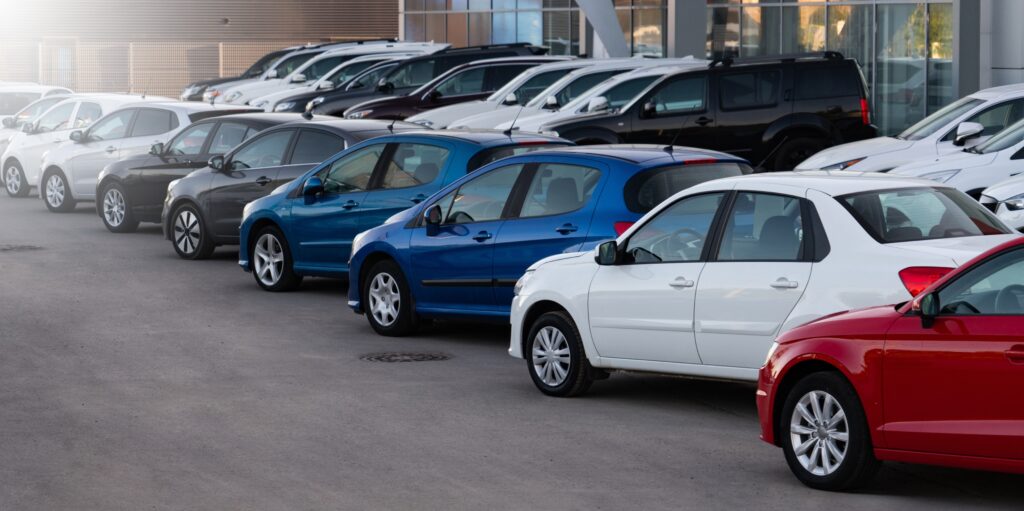Top Things to Check Before Buying a Secondhand Car

Buying a secondhand car is a great way to save money, but only if the vehicle is in good condition. Knowing what to check during your evaluation is vital to ensure you’re not investing in hidden problems. In this blog, we cover the key points to examine, from the car’s exterior to its paperwork, so you can drive away worry-free.
Key Things to Check When Buying a Used Car
Inspect the Vehicle Thoroughly
Inspect the vehicle inside and out. This process helps you identify potential issues before making a purchase. Here are specific areas to focus on during your inspection:
- Exterior Condition: Check the body for dents, scratches, or rust. Look for any signs of previous accidents, such as uneven gaps between panels. Pay special attention to the wheel wells and undercarriage. Ensure there are no cracks or large dents.
- Glass and Lights: Inspect all windows, mirrors, and lights. Make sure there are no cracks in the glass and that lights function properly. Faulty lights can indicate underlying electrical problems.
- Tires: Examine the tires for even wear. Uneven tread can signal alignment issues. Check the tire pressure and consider the remaining tread depth.
Check Under the Hood
Opening the hood allows you to inspect critical components of the car. Pay attention to the following:
- Engine Condition: Look for signs of leaks or corrosion. Check the condition of hoses and belts. These components wear out over time and may require replacement.
- Fluids: Check fluid levels, including oil, coolant, brake fluid, and transmission fluid. Dark, dirty oil or low fluid levels can indicate poor maintenance.
- Battery: Inspect the battery for corrosion and ensure connections are tight. A weak battery may lead to starting issues down the line.
Test Drive the Car
A test drive is essential when deciding on a used car. It allows you to assess the vehicle’s performance and comfort. During the drive:
- Start the Car: Turn on the ignition and listen for any unusual noises. A smooth start is a good sign.
- Acceleration and Braking: Test the acceleration and braking. Ensure the car responds well without strange noises or vibrations.
- Handling: Take the car through turns and rough patches. The vehicle should handle smoothly without pulling to one side.
Get a Vehicle History Report
Before making a purchase, obtain a vehicle history report using the VIN (Vehicle Identification Number). This report provides essential information about the car’s past, including:
- Accident History: Check for any reported accidents. A history of accidents may affect the car’s reliability and resale value.
- Title Status: Ensure the title is clean and not salvaged or rebuilt. A salvage title can indicate significant prior damage.
- Service Records: Look for maintenance history. Regular servicing indicates proper care.
Look for Red Flags
While inspecting and test driving, stay alert for red flags that could indicate issues. Here are a few common warning signs:
- Check Engine Light: If the check engine light is on, ask the dealer about the issue. It could indicate serious problems with the engine.
- Strange Noises: Listen for any unusual sounds while driving. Knocking or grinding noises can signal underlying mechanical issues.
- Unusual Smells: Pay attention to any burning smells or the scent of gasoline. These can indicate serious issues that require immediate attention.
Ask the Dealer Questions
When dealing with a dealership, ask questions to clarify the car’s condition and history. Here are some important inquiries:
- Warranty: Does the car come with a warranty? A warranty can provide peace of mind regarding future repairs.
- Certified Pre-Owned Status: Is the car certified pre-owned (CPO)? CPO vehicles often undergo thorough inspections and come with extended warranties.
- Price Negotiation: Ask how much the dealer is willing to negotiate on the price. This inquiry can lead to a better deal.
Have the Car Inspected by a Mechanic
Before finalizing the purchase, consider having the vehicle inspected by a trusted mechanic. A thorough inspection can uncover hidden issues. Mechanics can provide a written report detailing any concerns, which can influence your buying decision.
Understand the Costs
Be aware of the total cost of ownership beyond the purchase price. Consider the following factors:
- Monthly Payment: Factor in your budget for monthly payments if you plan to finance the car.
- Insurance Costs: Different vehicles have varying insurance rates. Obtain insurance quotes for the car you are considering.
- Maintenance Costs: Some vehicles have higher maintenance costs. Research potential repair costs to prepare for future expenses.
Final Thoughts on Buying a Used Car
Buying a used car involves careful consideration and thorough inspection. Know what to check when buying a used car to avoid costly mistakes. From inspecting the vehicle to obtaining a vehicle history report, each step plays a vital role in your decision-making process.
Remember, taking the time to inspect the vehicle, ask questions, and get a mechanic’s opinion can save you money and ensure you get a reliable car.
Whether you are buying from a dealership or a private seller, follow these guidelines to navigate the used car market confidently. With careful planning, you can find a vehicle that fits your needs and budget.
By being diligent and aware, you can drive away in a used car that meets your expectations and serves you well for years to come.
For more tips on buying cars, visit Ultimate Image Auto.
